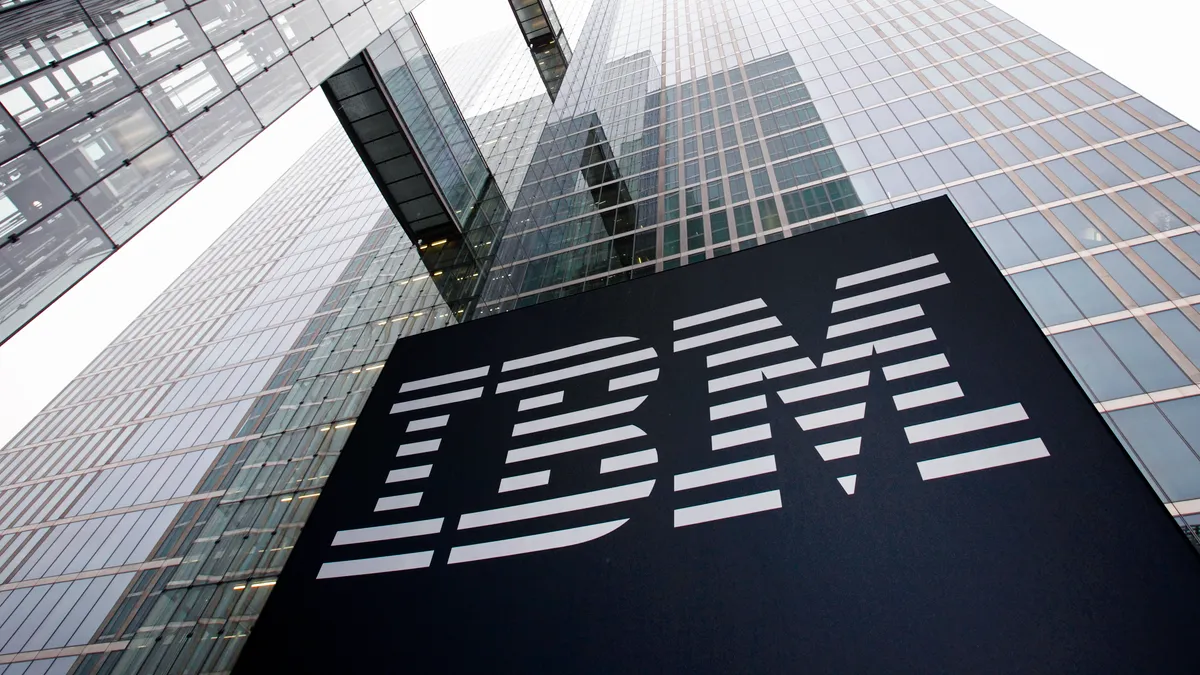During Hispanic Heritage Month, IBM has announced additional measures to support educational and career opportunities for the Hispanic students.
A long-term focus on education within Latino and Hispanic communities can bring forth structural changes in society, Guillermo Miranda, the vice president and global head of corporate social responsibility at IBM, told HR Dive, Education Dive's sister publication. Research by the tech company's Institute for Business Value found that 67% of Hispanic respondents said that they have to work harder to succeed because of their identity.
IBM is working with policy makers and education leaders to increase the number of Pathways in Technology Early College High Schools (P-TECH) schools in the U.S., Miranda said. IBM hosts 220 P-TECH school partners worldwide, and the company plans to expand the program to 150 schools in the U.S. — half of the company's total commitment of 300 by 2023, he said.
Established in 2011, P-TECH is IBM's public-education model that provides an opportunity, at no cost, for students from underserved backgrounds to earn both their high school diploma and a two-year associate degree linked to STEM fields. More than half (55%) of the U.S. P-TECH schools are majority Hispanic, according to IBM data.
IBM is also launching a Mentorship Marathon beginning with U.S. P-TECH schools. The marathon will match 1,000 IBM mentors with the students, and will also encourage other Fortune 500 companies to join in. "This is in Los Angeles with IBMers that understand Spanish and can be role models for this mostly Hispanic community that is going to benefit from this action," Miranda said.
P-TECH students become IBM employees
Internships are a component of the P-TECH program. In July, IBM announced the addition of 1,000 paid internships for a program running through Dec. 31, 2021.
Although IBM is providing opportunities for P-TECH students, they in turn are helping to shape the organization for the future, Miranda said. P-TECH students who are 18 year olds coming from cities like Newark and Austin are bringing IBM managers "a different perspective for our business execution" with diverse ideas and ingenuity, he said. "That is helping us as a business to behave differently and to be able to manage in the workplace very different perspectives that are enriching our own business outcomes," Miranda said.
Many students graduate P-TECH and become IBM employees, Miranda said. "They are driving change not only in their lives, but are impacting their families because they are bringing a different outlook, and a different level of income," he said.
For example, Gabriel Rosa attended a P-TECH school in Brooklyn and one day decided to hack into the school's computer system, according to an IBM blog post. After the principal reprimanded him, he gave him a MacBook "to experiment on something more productive, rather than destructive," Rosa recounted to IBM. He completed the typically six year program in four years, becoming the first person in his family to receive an associate's degree. Rosa was hired by IBM after an internship and is currently a software developer.
Miranda also noted that he, himself, is an example of how IBM has a commitment to building a diverse talent pipeline. "I am a lawyer from Peru with a heavy Latin accent," he said. Prior to his current role, Miranda was the chief learning officer at IBM. But the company wanted to think outside-of-box and expanded his role to perform, externally, the tasks he successfully completed internally, such as improving education and skills, Miranda said. "At IBM we are committed, and we are brave enough to do it," he said.
P-TECH boasts 600 corporate partnerships
Employees, future employees and customers expect that companies will make direct, positive impacts on local communities, according to IBM research on corporate social responsibility (CSR).
The P-TECH program, in particular, has 600 partnerships with companies including AT&T, Microsoft, Cisco and American Airlines. "We usually operate as an ecosystem," Miranda said. "We are not going to change the world alone. Any action that we do is brand agnostic in order to congregate people who want to identify with the action. This is not a marketing execution."
CSR is particularly important to millennials who are the nation's largest living adult generation. A 2019 Case Foundation report based on a decade of research on the behaviors and preferences of more than 150,000 U.S. millennials found they have changed philanthropy and are dedicated to social and political causes. "Millennials are using a communal approach to engage friends, family and work colleagues to address what they see as core issues the world needs to address," according to the report.
P-TECH is not only driving structural change in society; it's in alignment with IBM's business model, Miranda said. "We need the contribution of this pocket of talent to change our company for the good," he said.
Correction: An earlier version of this story reflected inaccurate information provided to HR Dive about IBM's mentorship program. It has been removed.




















